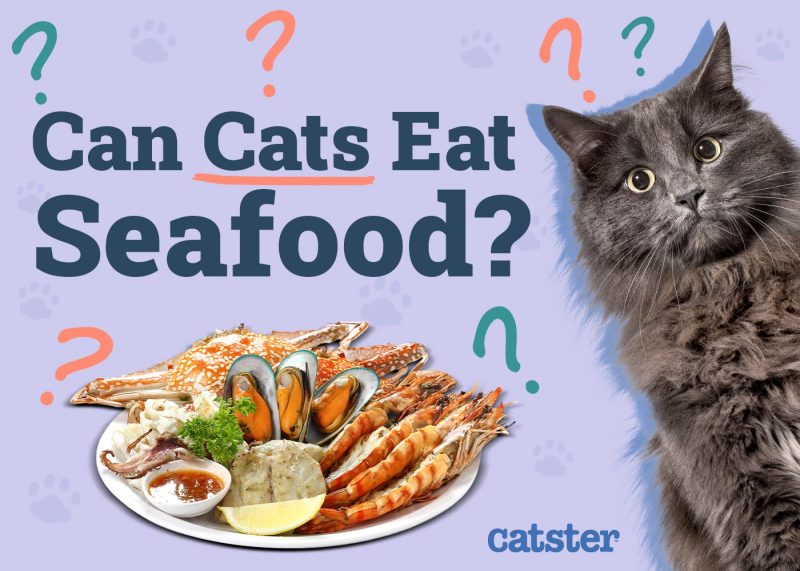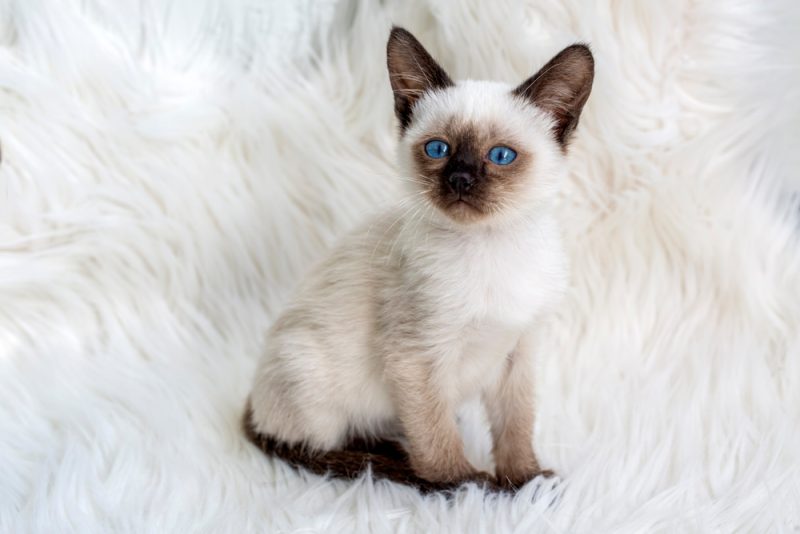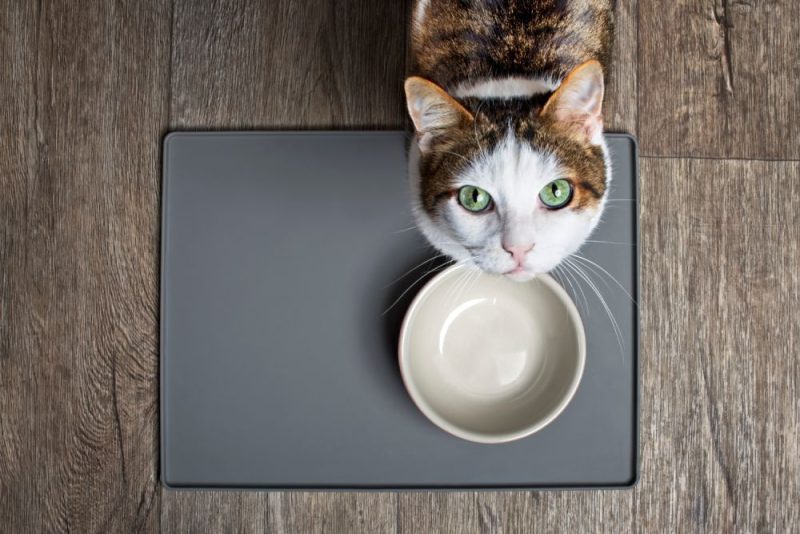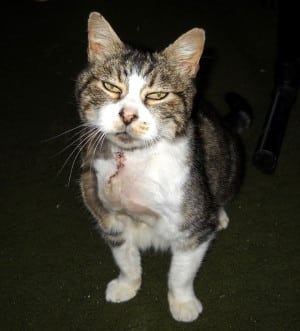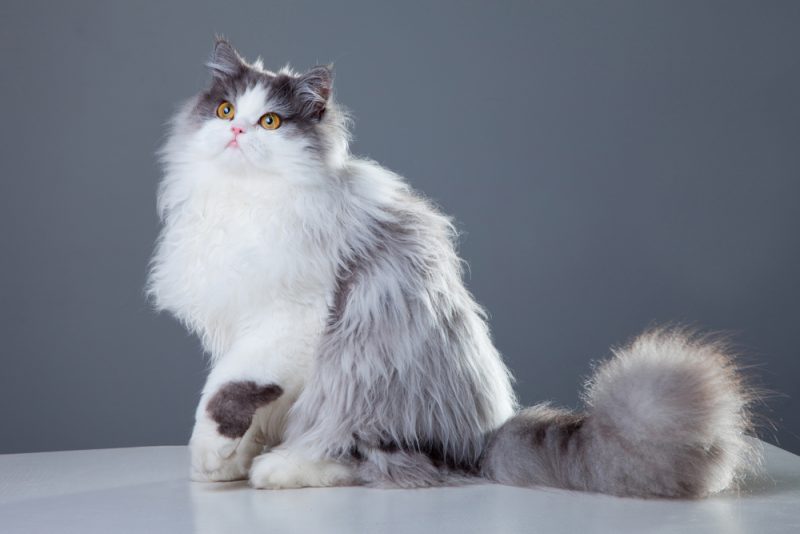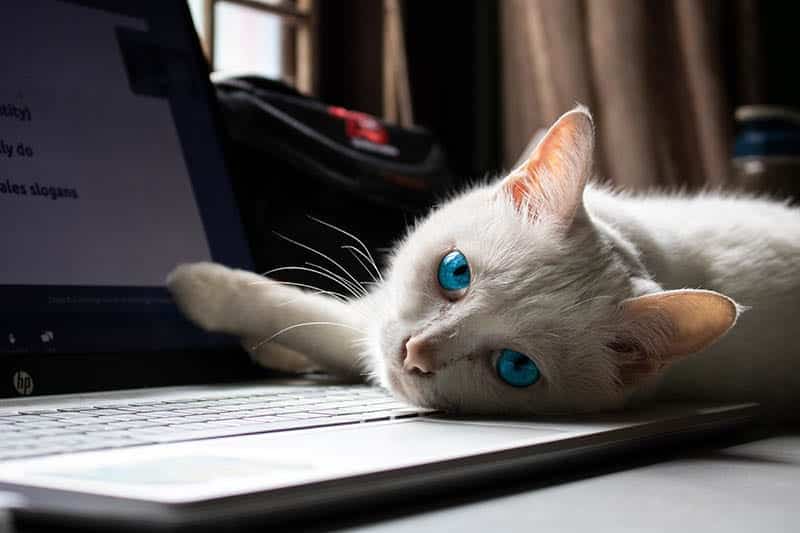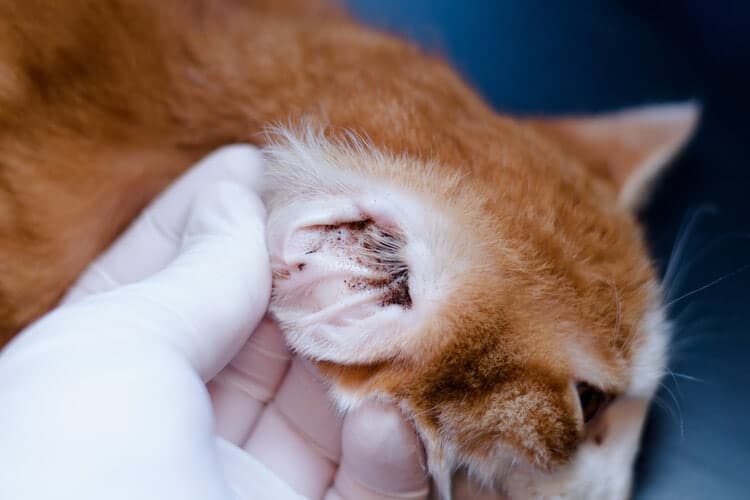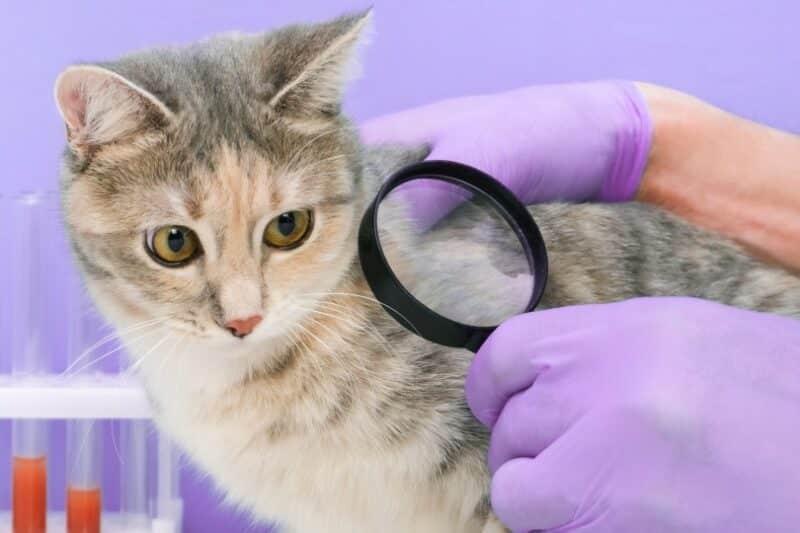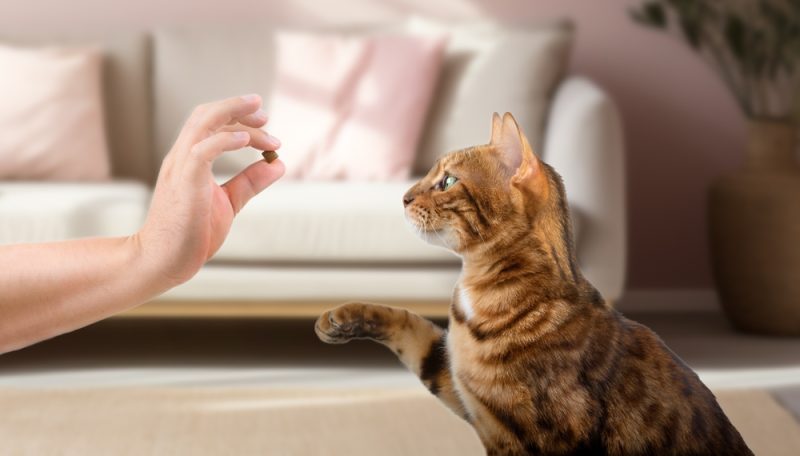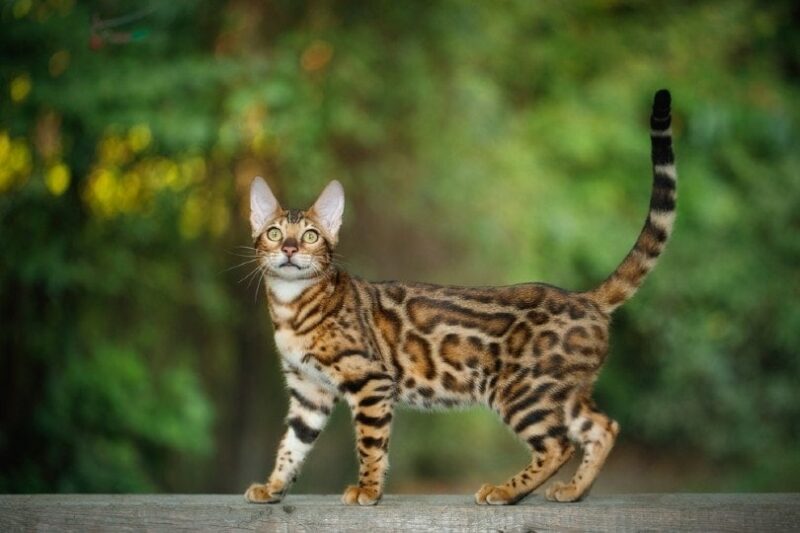It’s a popular belief that cats love fish, even though fish are not a natural part of a feline’s diet. Some cats don’t care for fish at all, while other kitties are always trying to snag a piece of tuna off their owners’ plates. But should cats be eating fish and other seafood? Is it good for felines to consume? The short answer is that cats can eat seafood occasionally, but serious considerations must be made.

Is Cooked Seafood Safe for Cats?
When thoroughly cooked and properly prepared, cats can safely eat a small amount of seafood like fish occasionally. Fish should never be a large part of any feline’s diet because it is not nutritionally complete and other potential problems could arise if they eat too much.
- Never Offer Fish Bones to Your Cat — The bones of fish are brittle and can cause problems like choking. They can also lead to intestinal damage. Always make sure any fish that your cat eats is deboned first.
- Keep Mercury Levels in Mind — Almost all fish that are harvested and sold to the public or personally caught contain levels of mercury. Unfortunately, mercury is dangerous to humans and animals alike, so it’s important to minimize fish intake and avoid fish known to have high levels of mercury altogether. Fish that eat other fish tend to have the highest levels of mercury. These fish include sharks, blue-fin tuna, and swordfish.
- Beware of PCBs — Polychlorinated biphenyls (PCBs) are synthetic chemicals that are not meant for consumption. These chemicals have been used in the production of plastics, paint, and electrical equipment. Unfortunately, farm-raised fish tend to have PCBs, as these chemicals build up in their fat. Exposure to PCBs is linked to immune and reproductive problems in wildlife. The EPA takes the position that PCBs are a probable human carcinogen that can cause cancer, so we can assume that this is also the case for pets like cats. Choosing sustainably sourced fish can help keep your cat’s mercury exposure to a minimum.
Since seafood is not a natural part of a cat’s diet, your feline does not need to consume it to maintain good health. However, a small amount of fish in the diet can provide a fair source of protein and fatty acids. Keep in mind that protein and fatty acids can be sourced from all kinds of other foods that are healthier for cats, such as chicken, turkey, and even eggs. It is therefore better to ask a veterinarian for advice before adding seafood to your cat’s diet.
Need veterinary advice but can't get to the clinic? Catster recommends PangoVet, our online veterinary service. Talk to a vet online and get the answers and advice you need for your cat without having to leave your living room — all at an affordable price!

Is Raw Fish Safe for Cats?
Ra fish might be safe for human consumption when prepared properly, but it is not a good option for a cat. First, raw fish can cause your kitty gastrointestinal discomfort. Second, raw fish contains a compound called thiaminase, which breaks down the thiamine and vitamin D in a cat’s body. This can lead to thiamine deficiency, which can result in signs like:
- Impaired vision
- Ataxia
- Tremors
- Seizures
If left untreated, a thiamine deficiency can result in neurological disorders that could ultimately lead to death. Therefore, it’s important to avoid a deficiency as much as possible, and a good way to do that is to avoid letting your cat eat raw fish.
Raw fish also contains high amounts of omega fatty acids, which if consumed in large quantities can potentially oxidize in the body and cause a vitamin E deficiency. This is why the AAFCO recommends supplementation of vitamin E when felines consume fish oil. Finally, raw fish can contain parasites and bacteria that cause illness. Two common types of bacteria to be aware of are Listeria and Salmonella. When consumed, these bacteria cause what we refer to as food poisoning, and it affects cats just like it does humans.
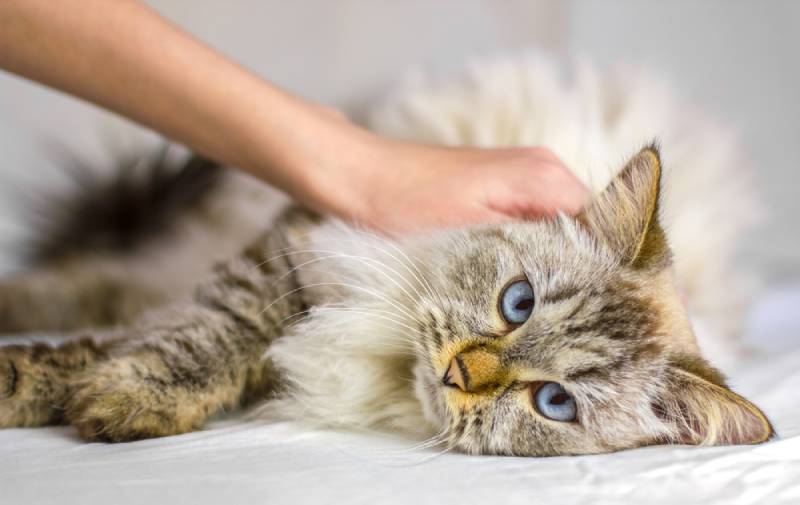
Can Cats Eat Shellfish?
Shellfish is safe for cats to consume, but it should be an occasional treat and nothing more. Felines should never consume raw shellfish for the same reasons that they should not consume any other kind of raw fish.
- Prawns
- Oysters
- Mussels
- Shrimp
Most cats seem to love eating shellfish as much as they do other types of fish, so don’t be surprised if they’re sitting nearby while you enjoy a plate of shrimp pasta.
Should Cats Eat Canned Tuna?
The answer to this question depends on the type of canned tuna that you intend to feed your beloved kitty. If it’s tuna canned in water, it can be offered to your cat like any other fish, but keep problems like mercury levels in mind. If it’s tuna canned in brine, don’t feed it to your cat. The sodium content that is transferred to the tuna from the brine could potentially cause electrolyte imbalances in the brain and body.
Tuna canned in oil should be off-limits because it’s rich and could cause digestive problems that are not comfortable for your cat.
Should Cats Eat Commercial Food With Fish or Fish Oil in It?
Yes, cats can eat commercial foods that contain fish and fish oil in the ingredients. These foods are specially formulated to include any supplements necessary to balance the vitamins and minerals and ensure that deficiencies do not develop. Other foods, like chicken and peas, help round out the diet and ensure that your cat gets adequate nutrition.
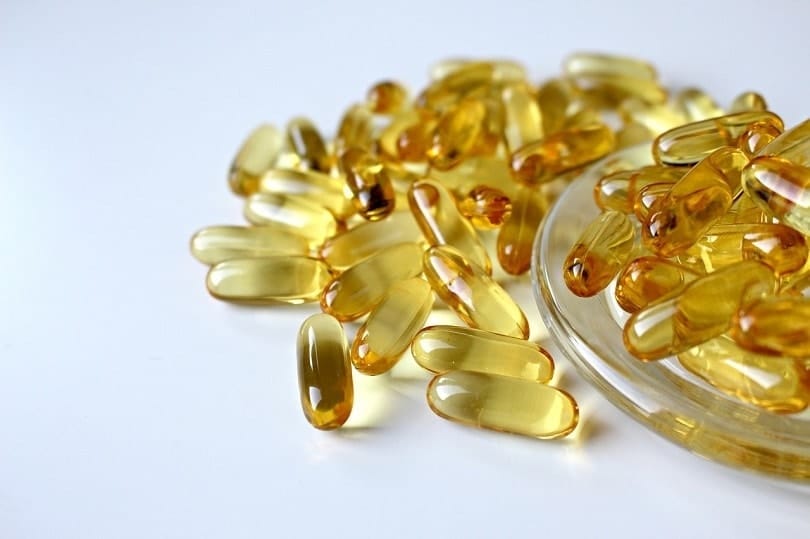
How to Prepare Fresh Seafood for a Cat
If you want to feed a small piece of fish or shellfish to your cat as an occasional snack, treat, or meal supplement, it’s a good idea to prepare the food yourself so you know exactly what’s in it. Certain prepackaged fish and fish that comes from a restaurant can contain ingredients like garlic and onions, which are toxic to cats. Preparing fish for your cat is easy because there is no need for any fancy prep steps.
All you must do is cook the fresh or thawed frozen fish in a small amount of water (this will help steam it and enable you to avoid using oil), and then let it cool before serving it. Don’t add any salt, pepper, or other ingredients before, during, or after cooking the fish. Once cool, give your kitty just a bite or two, and put the rest of the fish in the fridge or freezer to offer as a treat later.
Final Thoughts
Cats can eat small amounts of seafood occasionally as snacks or treats, but it should not make up most of any feline’s diet, especially in the long term. Feeding your cat commercial food that includes fish or fish oil is an exception, though it’s always a good idea to check with a veterinarian first and make sure you don’t need to supplement the diet to ensure proper health for your cat.
See Also:
Featured Image Credit: Okssi, Shutterstock
